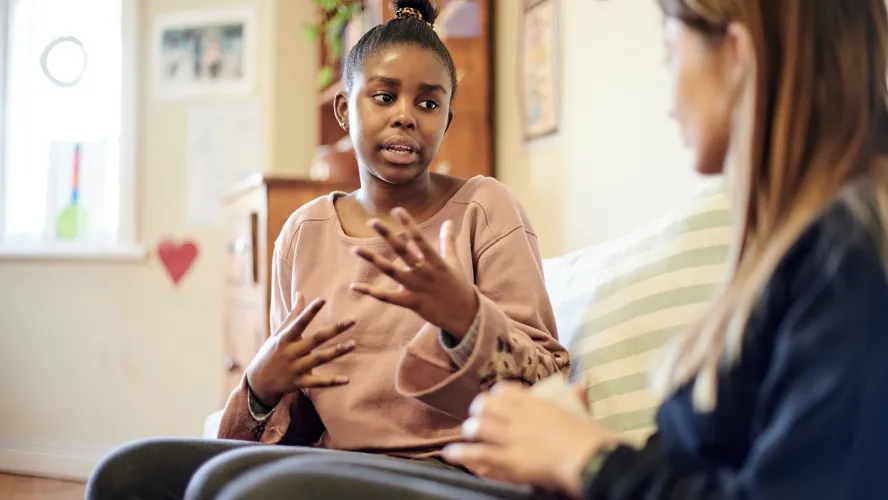Centering lived expertise in child welfare reform

More courts are opening their doors to lived-experience experts — through peer support, advisory councils, and meaningful courtroom roles. These efforts mark real progress. But transformation happens when lived expertise doesn't just have a seat at the table — it helps build the table.
Discover what it looks like when courts not only include — but actively center — the voices of people with lived experience in child welfare improvement efforts. This article features excerpts from the 2025 National Judicial Leadership Summit on Child Welfare.
Keys to shared leadership
Centering lived expertise is more than a best practice – it's a justice imperative. When courts move beyond inclusion to build shared leadership with those who have experienced the system firsthand, they unlock more equitable, effective, and human-centered approaches to child welfare.
Build trust through transparency
Acknowledge past harms, practice honesty, and create open feedback loops to foster long-term trust.
Pay lived experts fairly
Recognize their time, insight, and emotional labor with equitable compensation — just as you would any professional.
Co-create, don’t just consult
Invite lived-experience experts into the earliest stages of planning so their insights shape the process from the start.
Share decision-making power
Include lived experts in governance structures and leadership roles — not as guests, but as partners.
Invest in long-term partnerships
Provide training, mentorship, and opportunities for leadership growth to build sustainable engagement.
Foster a culture of learning
Cultivate trauma-informed spaces where vulnerability, accountability, and continuous improvement are the norm.
From judged to justice advocate: Shrounda's story
When Shrounda Selivanoff entered the child welfare system, she felt reduced to a single story: a drug-addicted parent. With foster parents ready to adopt her daughter and many doubting her ability to recover, she made a life-changing decision — to reclaim her story.
With the support of people who walked beside her, including a dedicated parent coach, Shrounda put in the work. She reunited with her daughter and began the journey from being judged to becoming a justice advocate.
The pivotal moment in her transformation came during her case dismissal, when Judge Patricia Clark looked at her and said: "You've done something important — something others need to learn and do for themselves and their families. Now go back and show others how."
"That brief conversation lit a fire in me," Shrounda said. "I stopped running from my story and started owning it — not as a place of shame, but as a foundation for transformation."
That charge became her mission: to reshape the system not through charity, but through solidarity.
Today, as chief of parents representation initiatives in Washington, Shrounda leads with that same spirit — helping build structures where lived-experience experts are valued and have more than just a seat at the table.
"Real change starts when decisions are guided by those who've lived it — because they understand it ... Lived experience should be setting that table. Lived experience should be serving at that table. And lived experience should be leading the way. If you want to understand the battle, follow the people who have made it through it."
– Shrounda Selivanoff
Engaging lived experts in meaningful ways
Sarah Burns, statewide innovation coordinator for Family and Youth Justice Programs with the Washington State Administrative Office of the Courts, has worked alongside lived experts to create meaningful change within the child welfare system. Through years of collaboration, she and her team developed an equity and engagement framework to guide how courts can work with lived experts across five levels of engagement: inform, consult, involve, collaborate and empower.
"Give lived experts real decision-making power. Let them lead the change." Burns said.
Inclusion is just the starting point. True change requires shifting from involvement to influence — from being invited in and having a seat at the table to being given power in helping to make decisions.
Angela Sager
Senior Court Management Consultant, NCSC
Five levels of engagement with lived experts
As more courts across the country adopt frameworks like Washington's, the future of child welfare reform becomes clearer: one where lived experience is not only valued, but vital. Refer to the levels below when considering how to engage with lived experts.
Learn how lived experts can improve court policies & operations
Our team brings years of court administration and child welfare experience to solving your toughest challenges. Discover how we can help your court.

